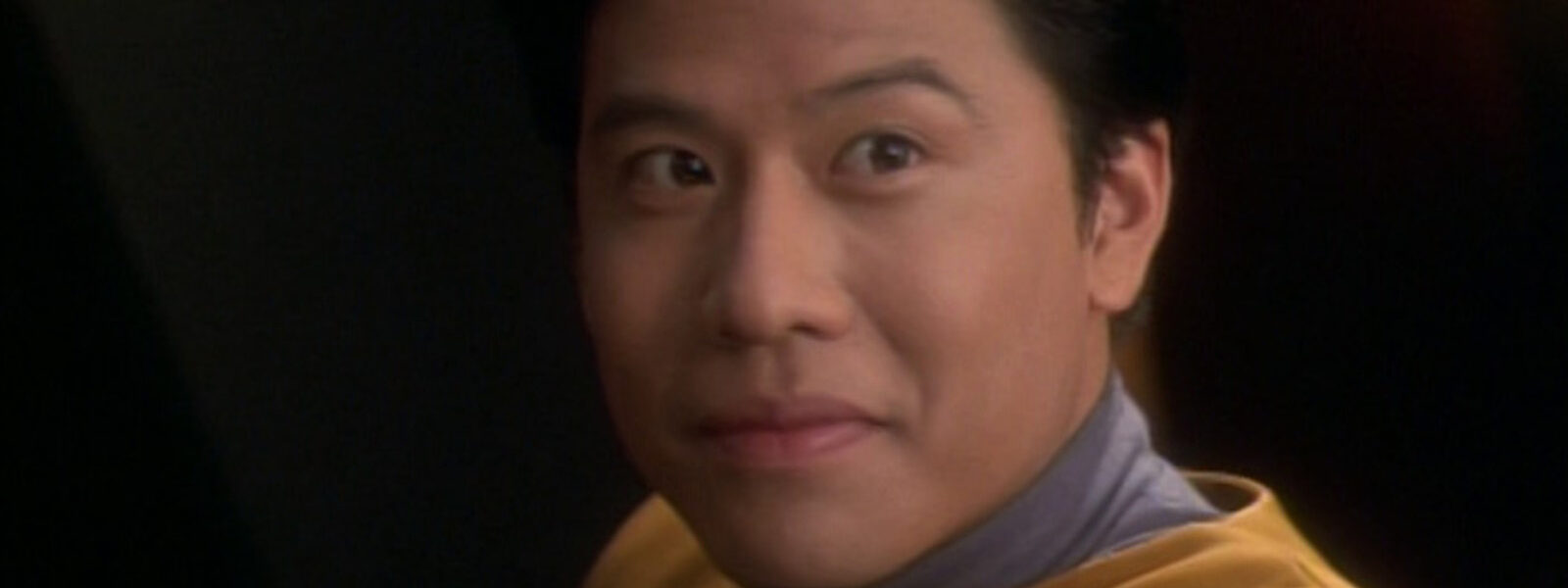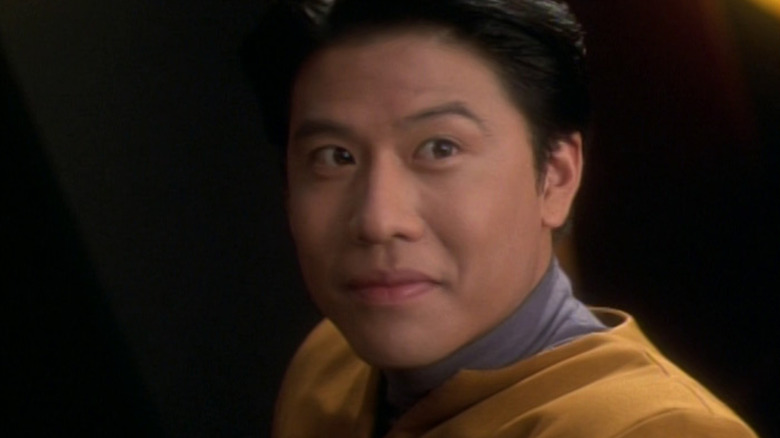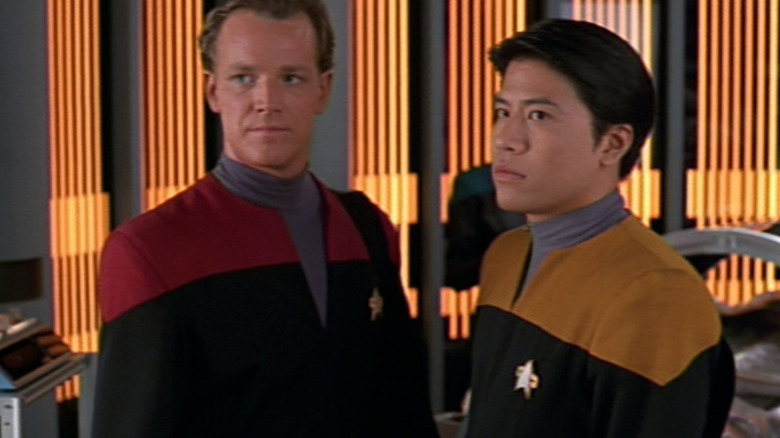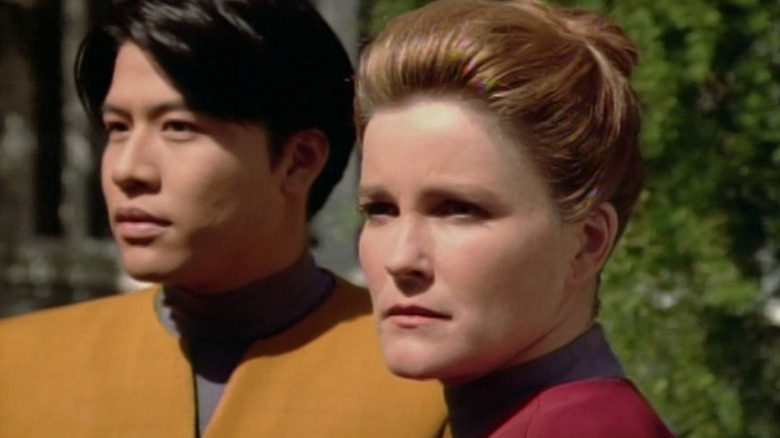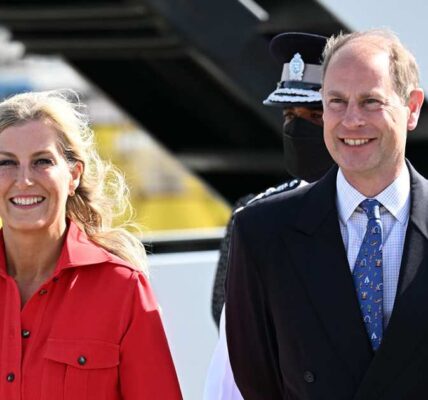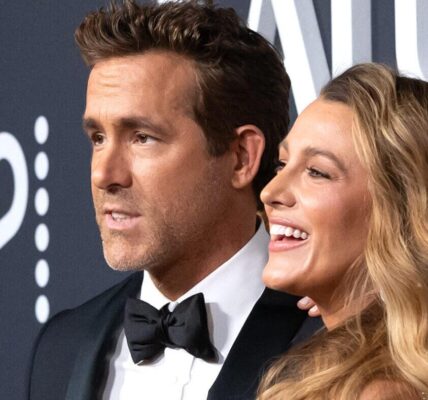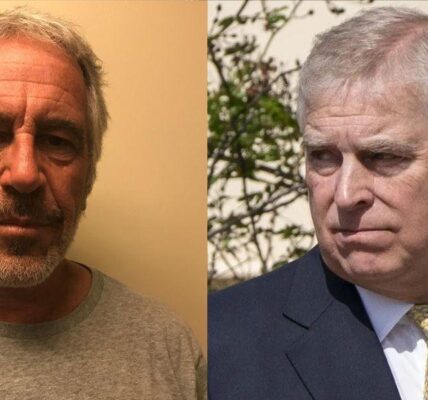Ensign Harry Kim (Garrett Wang) has become the punchline of many jokes among Trekkies, mainly because of poor sap’s rank. Harry was a young engineer, newly commissioned as an ensign and eager to serve aboard his first mission, the USS Voyager. He could not have predicted that the ship would almost instantly be magically propelled across the galaxy by a godlike alien, landing in the Delta Quadrant, 75 years from Earth. “Star Trek: Voyager” lasted seven years and the title ship went through many difficulties in its quest to return home. And all the while, Harry Kim remained an ensign, the lowest ranking officer on Voyager’s bridge.
Was Kim incompetent? Quite the contrary. He was enthusiastic, ambitious and intelligent. Kim’s biggest flaw, at least early in the series, was her youthful inexperience. In the end, he had more experience than any ensign in Starfleet. And yet he was never promoted. Only in a later episode of “Voyager” would he state out loud that he knew his captain didn’t want to upset the status quo when he was stuck in a remote location.
Wang has, of course, expressed frustration (mostly in a playful way) with the fact that Harry Kim has always been an ensign. In interviews, however, Wang spoke more seriously about several other frustrations he had with “Voyager.” In 2011, Wang spoke with StarTrek.comand the actor noted that he also missed out on many behind-the-scenes opportunities. Chief among them is that Wang, unlike several of his co-stars, was never allowed to direct an episode. Both Roxann Dawson and Robert Duncan McNeill had been allowed to direct multiple times each, while Robert Picardo directed twice and Tim Russ once. Wang wanted to direct and never got the chance.
Garrett Wang never directed an episode of Star Trek: Voyager
Wang noted that his acting abilities were diminished early on. He remembers receiving an explicit instruction from executive producer Rick Berman that human characters in “Star Trek” should be less expressive and more militarily formal than non-human characters. According to Berman, this was intended to make the alien characters stand out and allow viewers to see the difference between Starfleet and non-Starfleet personnel. Wang hated this mandate and recalled that he and his co-stars often had to reshoot scenes because they became too emotional.
Failing to make the characters more human and funny, Wang said, was one of his series’ biggest missed opportunities. However, when Wang said this to a TV Guide reporter, it seemed to put him on Rick Berman’s shit list. Wang only said something like (from his recollection): “I think the producers of ‘Voyager’ didn’t take the risk of making the show as good as it could be.” That was all. But Wang believes it was this interview that caused Berman to turn him down for a directing job.
As Wang says:
“Even though I wasn’t exactly specific about the issue, that printed comment alone sealed the death of my ambitions to direct an episode of Star Trek. Robbie McNeill was the first to direct an episode during the season two, there was “It was a wild ride from Robert Picardo, Tim Russ and Roxann Dawson to be next to direct season four. I thought, ‘Let them go ahead of me.'”
Which was, of course, a bit mean of Berman.
The actors were running Star Trek the whole time
Going back to the days of “Star Trek: The Next Generation,” actors began directing episodes of the franchise quite frequently. LeVar Burton directed 29 episodes overall of “Star Trek” and Jonathan Frakes directed 23. Five of the main cast members of “Deep Space Nine” directed episodes and, as mentioned, Dawson, McNeill, Picardo and Russ all made “Traveler.” This was of course after Leonard Nimoy had directed two “Star Trek” feature films in the 1980s. After “Next Generation,” if an actor was interested in directing, they often just had to make a special request to higher-ups and, after a period of training, they would eventually be allowed.
Wang says he made the request and was the first to be openly refused. In his words:
“I was the first actor in Star Trek history to be denied the opportunity to direct. The irony of the situation was that, unlike my predecessors who only wanted to direct for the sake of directing and acquire their DGA card, I was the only one who wanted to make “Trek” and make it the best possible, drawing on my knowledge and experiences as a lifelong science fiction fan. I sincerely believe that yes. Had I been given the opportunity, it would have been the best freshman effort by a Trek actor because of my passion for science fiction. This missed opportunity has haunted me ever since.”
Wang has unfortunately not achieved anything since. And yes, he has continued to work in science fiction, as well as on “Star Trek” side projects since “Voyager” went off the air in 2001. I think I speak for all Trekkies when I say I wish I could have seen what Wang could have done behind the camera. The actor, now 55 years old, may still have a chance one day.
